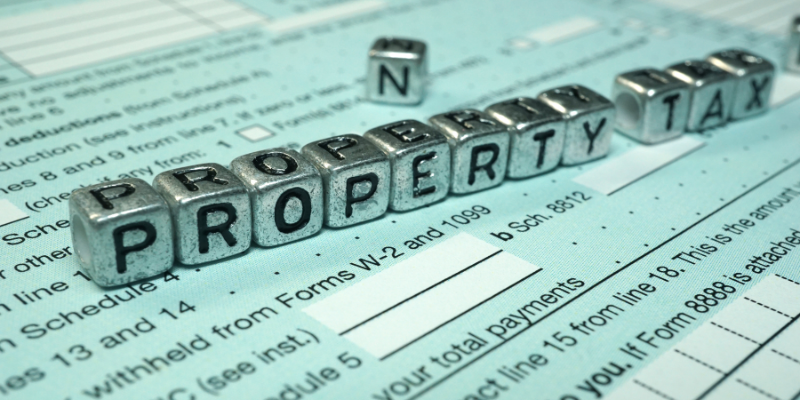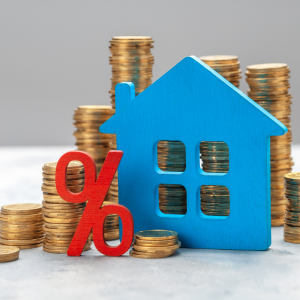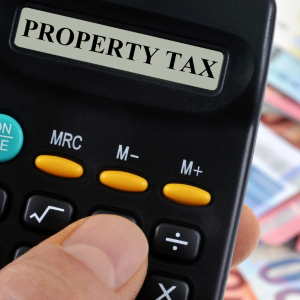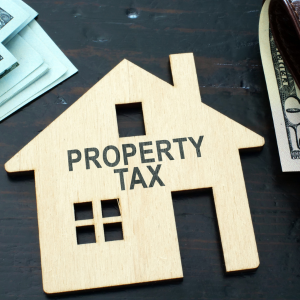
Understanding the Frisco, TX, Property Tax Rate: A Comprehensive Guide
When delving into the property tax rates in Frisco, TX, it’s essential to understand the various components that contribute to these rates and how they impact real estate and housing. Frisco’s property tax rate is determined by multiple taxing entities, including the city government, school districts, and county authorities.
Each of these bodies sets its own rate, which collectively forms the total property tax homeowners must pay. The Frisco Independent School District (FISD) typically represents a significant portion of this tax burden due to funding requirements for local education.
In addition, Collin County or Denton County taxes may apply depending on where your property is located within Frisco. These rates are assessed annually based on the appraised value of properties as determined by the county appraisal district.
As a rapidly growing city with expanding infrastructure needs, understanding how these elements influence property tax rates is crucial for current homeowners and prospective buyers who wish to navigate Frisco’s real estate market effectively. Being aware of annual changes in appraisal values and potential exemptions can provide valuable insights into future financial planning related to housing investments in this vibrant Texas city.
A Historical Overview of Property Tax Rates in Frisco, TX
Frisco, TX, has experienced significant growth over the past few decades, impacting property tax rates and the real estate market. As one of the fastest-growing cities in Texas, Frisco’s development boom has led to evolving property tax structures designed to support infrastructure and public services.
Historically, Frisco’s property tax rates have fluctuated in response to economic conditions, population increases, and municipal needs. In the early 2000s, as Frisco began its transformation into a bustling suburb of Dallas-Fort Worth, property taxes were adjusted to accommodate expanding educational facilities and public amenities necessary for a growing community.
This period saw strategic rate adjustments aimed at balancing revenue generation with homeowner affordability. Over the years, local government initiatives have sought to maintain competitive property tax rates while ensuring that quality services such as schools and public safety are adequately funded.
Understanding these historical trends helps real estate investors and homeowners anticipate future changes in Frisco’s dynamic housing market.
Main Reasons for the Property Tax Rate in Frisco, TX
Homeowners and real estate developers in Frisco, TX, are impacted by property tax rates based on a few key factors. One of the primary determinants is the appraised value of a property, which is assessed annually by the local appraisal district.

As Frisco expands and new developments and infrastructure are added, these appraisals are a reflection of property value on the increase. To a significant extent, the city’s budgetary needs, which are serving public schools, police, fire departments, and road maintenance, are funded with a determined tax rate.
The appraisals are impacted by public services such as schools, police, fire departments, and road maintenance, which also serve the city’s budgetary needs. Cost areas that may also impact rate appraisals include voter-approved bonds for school renovations and park enhancements. The economic situation in the area, new commercials, and job openings also change the tax rates, affecting the demand for housing and the amount of public funding available.
Public funding and property tax income for Frisco may also be affected by tax concessions offered, depending on the group, such as senior citizens or disabled veterans who fall under these demographics. Navigating the market, realtors or property developers in the area of Frisco, Texas, have to keep in mind the above-stated factors.
Frisco Local Government’s Role in Determining the Property Tax Rate
Like in any municipality, the local government in Frisco, TX, plays a vital role in setting the property tax, which impacts the real estate and housing market. Frisco City Council works with other local governmental departments to determine the budget for public services such as education, public works, emergency services, and recreational services.
All these services have a direct impact on the property tax rate set by the city. Local government policies are set to strike a balance between the revenue collected and the developmental objectives to be achieved, along with the subsidized public services provided to residents.
Equally, local government figures take into consideration the state of the economy, the growth of the population, and the demand for housing in the city for effective and sustainable urban planning. With good management of these factors, the local government of Frisco seeks to make the area appealing to homeowners and real estate investors.
How the Frisco, TX, Property Tax Rate Compares to Other Texas Cities
With the continuously thriving real estate and housing developments in the Frisco area, the city’s property tax rate often draws comparisons with other major cities in Texas. Although Frisco’s property tax rate is undoubtedly lower than that of other cities, it is still important to see how it fares in comparison with Dallas, Austin, and Houston.
Sustained and strategic urban planning, together with the affluent community in the area, serves to keep the infrastructure and public services spending in check. Because of the city’s rapid growth in population and demand for a wider selection of high-quality amenities, the Frisco property tax rate is, on average, a little higher than the state average.
In contrast to well-known Plano or McKinney, Frisco is right on the balanced approach, showing it by offering great value with well-renowned public schools and recreational services. The comparison with other Texas cities enables prospective investors and homeowners to make the best choice related to real estate in Frisco.
The Effect of Educational School District Funding on Property Taxes in Frisco
In Frisco, Texas, the funding requirements of the local school districts have a notable impact on the property tax rates. As one of the fastest-growing cities in Texas, Frisco has a surging demand for quality education, which in turn increases funding requirements for the school districts.

School districts rely heavily on property taxes as a significant source of funding. This tax is levied on homeowners within the district. With families relocating to Frisco, the district is compelled to provide excellent education. For that, investments in school infrastructure and programs need to be made.
This need to achieve educational standards and the growing number of students drives a greater budget for new facilities and advanced learning technologies. Thus, in Frisco, property tax rates are increased to meet the financial requirements of the school districts.
In the case of Frisco, the balance between educational funding and property tax rate demonstrates the degree to which education spending influences the taxes paid on real estate as well as the affordability of housing in this lively city.
Economic Growth and Its Influence on the Property Tax Rate in Frisco, Texas
The Texas city of Frisco is presently witnessing significant economic growth, which is affecting the rates of property taxation in the area. The new and existing businesses and other developments in the city are continuously driving the infrastructure and public services of the city to new heights.
The economic activities in the area have been leading to a surge of new residents, which in turn has been increasing the demand for real estate and thus affecting the overall pricing. The property values in Frisco are now increasing, which impacts the property tax rates levied on the town.
The government is able to provide the city population with services like education, healthcare, and infrastructure, which are all very costly and need to be maintained for the smooth swiftness of growth. Hence, the residents of Frisco are faced with higher property taxation in the near future, but they are also witnessing improved services and amenities in the vicinity.
Frisco is a hotspot for economic multi-development, and with real estate opportunities come great challenges. The balance of property taxation and economic development is essential to understand for both homeowners and investors.
How Much Is Property Tax in Frisco?
For both homeowners and investors in Frisco, Texas, being aware of the property tax rates is highly important. The property tax rate in Frisco is appraised on several factors, such as the property’s market value and the relevant tax schedules of the property and the value of the land by the local governmental agencies.
Currently, the average property tax rate in Frisco is approximately 3% of a property’s assessed value. This rate is subject to changes based on the school or special service district in which the property is located. The property tax in Frisco supports public education, maintenance of infrastructure, and other public emergency services.
Included in the property tax are exemptions such as the homestead exemption, which makes homeowners pay less tax by lowering the value of the property that is taxable. Investor home buyers in Frisco and nearby cities often consider these exemptions when evaluating property value and long-term investment potential. These are some of the reasons why Frisco is a good area to settle in, as it helps to plan financially by lowering property value investments.
How To Get Your Property Tax Rate in Texas
If you are searching for your property tax rate in Frisco, TX, or anywhere in Texas, it is important to note the tools available for homeowners and property investors. Start with the local county appraisal district’s website; for instance, if you are in Denton or Collin County, you would go to their respective appraisal districts’ websites.

These sites have comprehensive property search tools that allow you to search through addresses or parcel numbers. After locating the property, you can also view information on the assessed value and tax rate.
Apart from that, each Frisco taxing unit, like school districts and the city government, as well as special districts such as utility or hospital districts, annually sets its property tax rate. Therefore, your total property tax rate will be the total of all these individual rates.
If you need to find out how these rates are calculated, any other specific information, or possible eligibility for exemptions like homestead exemptions or senior citizen discounts, you could reach out to the local tax assessor-collector’s office. Having this information is important for properly planning and budgeting real estate investments and housing costs in Frisco’s ever-changing market. Whether you’re holding or looking to sell your home for cash in Texas and neighboring cities, understanding these tax details can help you make better financial decisions.
Do you need to sell your home? Whether you want a quick sale, to avoid expensive repairs, or prefer a hassle-free process, Southern Hills Home Buyers is here to help. We provide fair cash offers, take care of all the details, and make the experience smooth. Have questions or ready to sell? Contact us at (214) 225-3042 for a no-obligation offer. Get started today!
Helpful Frisco Blog Articles
- Proven Strategies To Prevent House Foreclosure In Frisco, TX
- Frisco, TX: Best Neighborhoods For Budget Living
- Expert Tips For Selling Your Home By Owner In Frisco, TX
- Frisco, TX, Property Tax Rates For Real Estate And Housing
- Is Frisco, TX, The Ideal Place To Call Home
- Explore Frisco: Free Activities And Real Estate Insights In Frisco, Tx
- Exploring Family-friendly Real Estate And Activities In Frisco, TX
- Top-rated Property Managers In Frisco, TX

| LEVIES | TAX BASED | TAX PAYMENT | EFFECTIVE TAX RATE | FRISCO ISD | DENTON COUNTY, TEXAS |
| DENTON COUNTY, TX | MARKET VALUE | HOMEOWNERSHIP | TAX ASSESSMENT | COLLIN COUNTY COMMUNITY COLLEGE DISTRICT | U.S. |
| PAYMENT | MEDIAN | TAX YEAR | FISCAL YEAR | LAW | INBOX |
| CALCULATOR |
